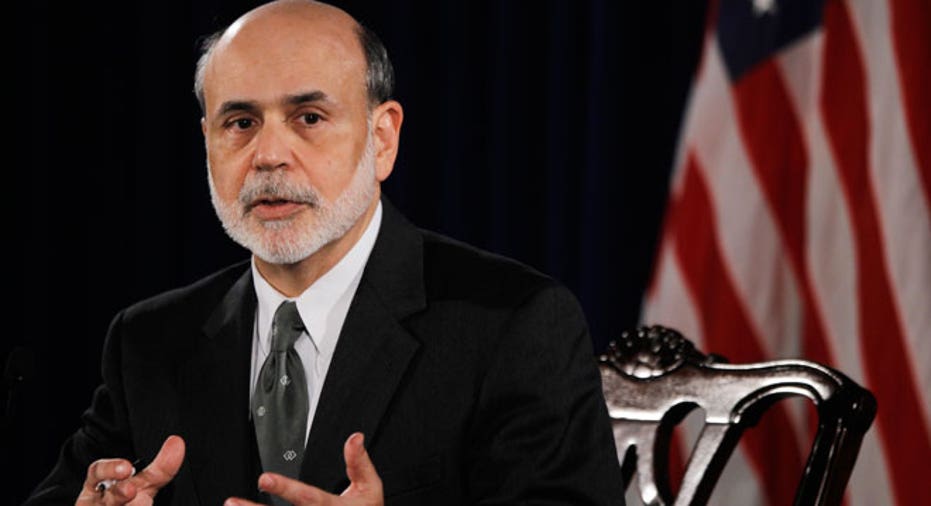Bernanke: Gov't Needs Better Way to Deal With Problem Banks

Federal Reserve Chairman Ben Bernanke said on Friday that there was still an "awful lot of slack" in the U.S. labor market, but cautioned that economic data did not do a good job of providing an accurate measure.
"I think the unemployment rate probably understates the degree of slack in the labor market. I think the employment-population ratio overstates it somewhat, because there are important downward trends in participation," he said in response to an audience question during a panel discussion at the IMF.
"But that being said, I think we would agree that there is an awful lot of slack in the labor market - a lot of young people living with their parents and the like - and that is a very important imperative, and why the Federal Reserve in particular is taking strong actions to support job creation."
Bernanke was not specifically referring to the latest employment report, released earlier on Friday, which showed the unemployment rate rose to 7.3 percent in October.
Bernanke was taking part in a panel discussion that included IMF Chief Economist Olivier Blanchard, former IMF Chief Economist Kenneth Rogoff, former U.S. Treasury Secretary Lawrence Summers, and Stanley Fischer, whom the conference honored. All had been taught by Fischer.
At one point, Bernanke and Summers, who had been a top contender to replace him at the helm of the U.S. central bank until political opposition killed his chances, debated theories of negative interest rates.
That discussion was spurred after Summers delivered a very gloomy diagnosis of why U.S. growth has been so soft since the 2008 financial crisis.
The Fed chief was also asked about the mounting burden of student debt, whose outstanding balances rose by $8 billion in the second quarter, to $994 billion, according to data from the Federal Reserve Bank of New York.
"To the extent that there is a lot of student debt held by people not working, it is obviously another drag on the recovery. I don't see it as a source of financial crisis per se, simply because it is primarily the asset of the federal government," he said. "What it could be, ultimately, is another fiscal cost."
(Reporting by Alister Bull; Editing by Dan Grebler)



















